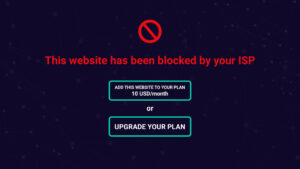Does pay per click work for business?
Does pay per click work? The short answer is, yes. Does pay per click work overnight? No. Pay per click marketing takes time to generate information [data] in order to figure out what has been working and then make adjustments and optimizations in future application. I have experienced much frustration with clients who want to stop all paid search marketing within days or weeks of initial campaign launch because it is not producing as fast as they may have expected.
Pay per click marketing on Google, Yahoo, and MSN\Bing requires the search marketer to preform keyword building, ad copy building, account set up, tracking, bid management and more. Does it make sense to give such an undertaking only a few days or weeks to generated perfect results? No, it does not.
In fact, it is quite normal, for an adjustment period of a month to three months before key performance indicators (KPIs) begin to produce positive results [positve or negative]. There are a lot of variables to consider which impact pay per click results; strategy, location, demographics, competition, user behavior, click to conversion rates, impressions, ad variations, dynamic insertion to name a few. It is very possible it may take up to a month to find out that a new strategy is needed to combat thick competition. This could require a full blown reconfiguration of everything. Is this a painful choice? A little. Is it the end of the road? No, it shouldn’t be.
It is no wonder many search marketing firms and online marketing professionals require contract terms with minimum time frames. Pay per click marketing is not perfect but if you were to weigh, on a cost per lead or conversion rate, effectiveness of PPC versus traditional media PPC will win hands down. It is much easier to effectively track and adjust PPC daily, in a paid search user interface, than it is to change a national advertisement on Countdown with Keith Olbermann, billboard, or newspaper ad. In fact, I’m pretty sure you can’t change those media vehicles in minutes.
Unless you are tracking response rates with a unique phone number knowing the true conversion rates and cost for each conversion is nearly impossible. However, pay per click can be assessed down to each single response to your ad. It is the ‘click’ which indicates interest, curiosity, possible intent, and conversions. Real trackable people looking for your product or service.
Traditional media (tv, radio, print, billboards, and direct mail) is a direct interruption of an individuals time and concentration. When a person sees these advertisements you are interrupting their daily routine and demanding their attention. More than likely, your ad will be fast forwarded or ignored and the message [for the most part] is lost.
With pay per click marketing, the individuals clicking on your ad are interacting with your company by will. There is no force…there is no demand for attention. The business ad is positioned at the right time, at the right place, during a decision or buying cycle. I would say that it is more important than ever to let the data collect and revise paid search than to pull the plug.
Sure, it is another issue if your pay per click manager lets money bleed out on a daily basis. Then it is your online consultant who needs to get pulled not your ad dollars. * More on this in another post. Keep your ad dollars in paid search and be patient. It takes time for ads and keywords to work. It takes time for your campaign manager to locate the correct combination to your target audience.
My recommendation: if your paid search is bleeding money, find a new campaign manager or search firm. If your pay per click marketing isn’t exactly what you want it to be a week, month, or two months from when it first started, be patient. Pay per click does not work for all businesses and it is not the perfect solution to your marketing needs but it works. The only way you will find that out is to give it a chance and breathe.


